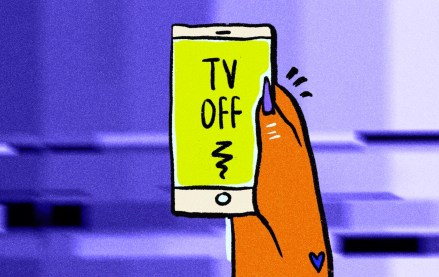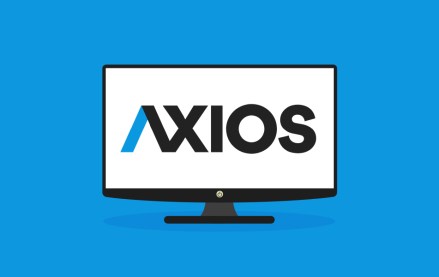Jeffrey Katzenberg’s short-form video platform Quibi draws big Hollywood names, but big questions, too
Hollywood mogul Jeffrey Katzenberg’s bet that people will pay for premium, short-form video is looking much safer. This week he announced that four Hollywood heavyweights will produce original shows for the forthcoming subscription-based mobile video service he founded, Quibi (née NewTV). Entertainment executives don’t want to bet against Katzenberg and Quibi’s billion-dollar war chest — some of that money could make it their way — but they’re wary of yet another attempt to get people to use a new service to watch TV-quality, YouTube-length shows.
What Quibi is trying to do, said one production studio exec, “is not without challenges. But it goes back to what is the creative vision? What’s the insight that they’re seeing? How are they sidestepping the failures of others?”
Quibi, which won’t launch for at least another year, offered some answers to those questions this week. During an event in Los Angeles on Oct. 10, Katzenberg and Quibi CEO Meg Whitman announced that reigning Oscar-winning director Guillermo del Toro, “Training Day” director Antoine Fuqua, “Spider-Man” director Sam Raimi and “Get Out” producer Jason Blum will create shows for Quibi. That roster has fueled hope that Quibi and others investing in original short-form programming, like Netflix and Amazon, may legitimize the format similarly to how HBO, FX and others validated television as a medium of the same caliber as film. “You’re starting to see the professionalization of the format,” said TJ Barrack, founding partner of Adaptive Studios, which specializes in short-form programming.
By getting filmmakers and producers with such high pedigrees to produce shows, Quibi has signaled to the broader entertainment market that maybe this time is different. If names like Katzenberg and del Toro and Blum see a market for premium short-form shows, then there is one or they will be able to create one.
And if Quibi goes the way of defunct premium short-form video platforms like Verizon’s Go90, Vessel and Fullscreen, then that’s fine — as long as the checks clear.
As Digiday has previously reported, Quibi is willing to pay as much as $150,000 per minute for shows whose episodes run under 10 minutes. For comparison, Netflix and HBO pay $200,000 to $300,000 per minute for shows like “House of Cards” and “Game of Thrones,” Katzenberg has said. That big war chest still doesn’t mean people will pay the $5 a month that Quibi will charge to watch them with ads or $8 to watch without ads.
“I don’t think there’s an appetite [among audiences] for really premium content on the short-form side,” said one entertainment executive. That said, “if they’re writing blank checks, we’ll be the first people to pitch them a show.”
As to whether viewers are interested in premium short-form content, Quibi is aimed at appealing to 25- to 30-year-olds, Katzenberg said last month at a conference hosted by AT&T. These viewers are among the same twentysomethings that Go90, Fullscreen and Vessel had tried and failed to attract. Quibi could stand a better shot now with these viewers. While these people may not have tuned into Go90 et al., they’ve been watching short-form videos on YouTube and more recently Instagram and Snapchat, and even if they can afford Netflix now, their predisposition to shorter fare may not have abated and may still like the middle ground of premium short-form shows that Quibi plans to offer. “As that audience has matured, the behavior patterns and snackability of content consumption is still a part of them,” said Barrack.
Quibi is far from the only company looking to serve short-form programming to audiences. Amazon, Hulu and Netflix have added short-form programming to their respective video platforms. Facebook and YouTube continue to invest in highly produced original series. Snapchat has officially entered the fold with its Snap Originals slate of scripted and documentary series. And companies are already producing episodic shows for Instagram’s IGTV in case the Facebook-owned app opts to follow Snap’s lead (again).
By asking people to get in the habit of using a new app, Quibi is also at a disadvantage compared to the competition, which is simply asking people to check out something new on the platforms they already use. This is a major obstacle that Go90 et al. failed to overcome. Yet the optimists think Quibi will be able to overcome the challenge because of the big names and money behind it. The programs that Del Toro and company will produce are expected to be the flagship, or in Katzenberg’s words “lighthouse,” programming. “One breakout hit can really float a platform,” said the production studio exec, citing Netflix’s “House of Cards” as making the market for TV-quality, digital-only original programming.
By comparison, Vessel and Go90 never found their breakout content and struggled to find an audience for their platforms. They both had great technology and ideas, but they were not funding the type of “noisy, loud content that would have converted a subscriber,” said Shabnam Mogharabi, CEO of SoulPancake, an entertainment company that produces shows for digital and TV and is owned by film production company Participant Media. Quibi’s approach of acquiring shows produced by high-profile talent and then building the technology around that “is likely to be more successful,” she said.
Even then, questions of its viability will continue to dog Quibi for at least a year until it launches and shows whether it has acquired the type of premium content that can make a platform. “I do think that the platform and the content are king and queen, but it’s hard to tell which one is God,” said the production studio exec.
More in Future of TV

Future of TV Briefing: Media Rating Council identifies ‘the problem of our time’ for measurement
This week’s Future of TV Briefing looks at how the industry’s measurement arbiter is looking at ensuring measurement systems are able to reliably identify audiences across channels in a privacy-compliant manner.

Future of TV Briefing: Making sense of the TV industry’s latest measurement moves
This week’s Future of TV Briefing looks at the recent developments in the TV measurement market on the eve of this year’s upfront negotiations.

Future of TV Briefing: How Axios Entertainment is looking to expand its original programming business
This week’s Future of TV Briefing looks at how Axios’s entertainment division has its eyes on moving physical production in-house and getting into scripted programming.





